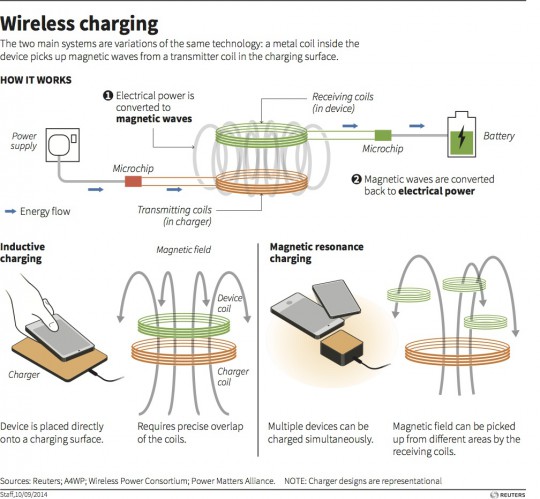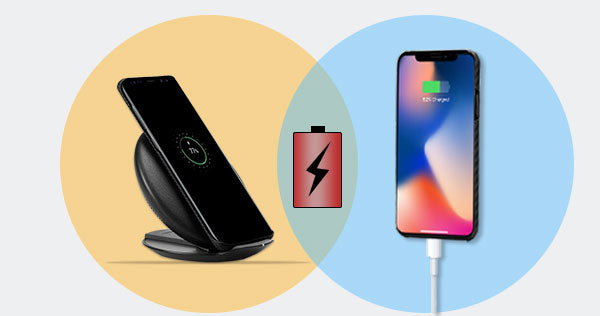Table of Contents
| Section | Description |
|---|---|
| Introduction | Overview of wireless charging and its growing popularity. |
| How Wireless Charging Works | explanation of the technology behind wireless charging and how it differs from wired charging. |
| The Impact of Wireless Charging on Battery Health | Examination of the potential effects of wireless charging on battery health, including myths and facts. |
| Key Factors Influencing Battery Health | Discussion of factors like heat, charging habits, and charger quality that impact battery longevity. |
| Comparing Wireless and Wired Charging | Pros and cons of wireless versus wired charging in terms of battery health. |
| Best Practices for Wireless Charging | Tips to minimize potential negative effects of wireless charging on battery health. |
| Conclusion | Summary of findings and recommendations for maintaining battery health while using wireless charging. |
Introduction
Wireless charging has become increasingly popular, offering a convenient and cable-free way to power up our smartphones. As this technology becomes more widespread, concerns have emerged regarding its impact on battery health.
Does wireless charging degrade your phone’s battery faster than traditional wired charging? In this blog post, we will explore how wireless charging affects battery health and what you can do to minimize any potential risks.
How Wireless Charging Works

Wireless charging, also known as inductive charging, uses electromagnetic fields to transfer energy between a charging pad and your device.
Unlike traditional wired charging, where electricity is transferred directly through a cable, wireless charging involves the use of a coil in the charging pad that creates a magnetic field. This field induces an electric current in the receiver coil within the smartphone, which then charges the battery.
This method of charging, while convenient, operates differently from wired charging and has led to various questions about its impact on battery health.
The Impact of Wireless Charging on Battery Health
The concern that wireless charging could harm battery health more than wired charging stems from several factors, including heat generation and charging patterns. Here’s a closer look:
- Heat Generation:
- One of the primary concerns with wireless charging is that it can generate more heat than wired charging. Heat is a known factor that can accelerate battery degradation over time. During wireless charging, energy loss in the form of heat can occur due to the inefficiencies in the power transfer process.
- However, it’s important to note that modern wireless chargers are designed to manage and dissipate heat effectively, minimizing the impact on battery health.
- Charging Cycles:
- Another concern is that wireless charging might encourage more frequent charging cycles, which could potentially shorten the battery’s lifespan. Since wireless chargers are often placed in convenient locations, users might be tempted to top up their batteries frequently, leading to an increased number of partial charging cycles.
- While it’s true that more frequent charging can affect battery longevity, it’s also worth noting that partial charges are generally less harmful to lithium-ion batteries than full charge/discharge cycles.
- Myths vs. Facts:
- There is a common misconception that wireless charging drastically shortens battery life. In reality, the impact of wireless charging on battery health is similar to that of wired charging when used properly. The heat generated by wireless charging is comparable to that of fast wired charging, which also heats up the battery.
Key Factors Influencing Battery Health
Several factors affect battery health, regardless of whether you use wireless or wired charging:
- Heat: As mentioned, heat is a significant factor in battery degradation. Both wireless and wired charging can generate heat, especially if fast charging technologies are used. It’s crucial to ensure proper ventilation and avoid charging in hot environments.
- Charging Habits: Consistently charging your phone to 100% or letting it drain completely can reduce battery lifespan. Lithium-ion batteries, which are commonly used in smartphones, perform best when kept between 20% and 80% charge.
- Charger Quality: The quality of the charger and charging pad can also impact battery health. Using certified and high-quality chargers ensures efficient energy transfer and minimizes unnecessary heat production.
Comparing Wireless and Wired Charging

Pros of Wireless Charging:
- Convenience: No need to plug in a cable, just place your device on the pad.
- Less Wear and Tear: Reduces wear on charging ports and cables.
Cons of Wireless Charging:
- Heat Generation: Can produce more heat compared to slow wired charging.
- Charging Speed: Generally slower than wired fast charging options.
Pros of Wired Charging:
- Speed: Typically faster, especially with fast charging cables and adapters.
- Efficiency: More direct and efficient energy transfer.
Cons of Wired Charging:
- Wear on Ports: Frequent plugging and unplugging can wear out charging ports and cables over time.
Best Practices for Wireless Charging
To ensure that your battery remains healthy while using wireless charging, consider the following tips:
- Use Quality Chargers: Invest in high-quality wireless chargers that are certified by relevant authorities.
- Avoid Overheating: Charge your phone in a cool, well-ventilated area, and remove it from the charger once it reaches full charge.
- Moderate Charging: Avoid constantly charging your phone to 100% or letting it drop to 0%. Aim to keep it within the 20% to 80% range.
- Take Breaks: Give your device and the charger a break after prolonged charging sessions to cool down.
Conclusion
Wireless charging, when used properly, does not significantly harm your phone’s battery health more than traditional wired charging. The key is to manage heat and charging cycles effectively. By following best practices and using quality equipment, you can enjoy the convenience of wireless charging without compromising your battery’s longevity.
FAQs
1. Does wireless charging degrade battery health faster than wired charging?
Wireless charging does not inherently degrade battery health faster than wired charging. However, it can generate more heat, which is a factor that can contribute to battery wear over time. High-quality wireless chargers are designed to manage and dissipate heat effectively, minimizing this risk. It’s essential to use certified chargers and to avoid charging in hot environments.
2. How does wireless charging affect battery life?
Wireless charging can impact battery life due to the heat it generates, which can accelerate battery degradation if not managed properly. However, the actual effect on battery life is comparable to fast wired charging. The key factors influencing battery life are heat, charging habits, and the quality of the charger, rather than the method of charging itself.
3. Is it safe to leave my phone on a wireless charger overnight?
Leaving your phone on a wireless charger overnight is generally safe if the charger has built-in mechanisms to stop charging once the battery is full. However, continuous charging at 100% can strain the battery over time. It’s advisable to use chargers with overcharge protection and to remove the phone from the charger once it reaches 100%.
4. Does wireless charging generate more heat than wired charging?
Yes, wireless charging can generate more heat than wired charging, especially if the phone is not aligned correctly on the charging pad or if the charger is of low quality. Heat is a byproduct of the less efficient energy transfer in wireless charging. Ensuring proper alignment and using high-quality chargers can help mitigate this issue.
5. Can wireless charging affect the performance of my phone’s battery in the long term?
In the long term, the impact of wireless charging on battery performance is similar to that of wired charging, provided that heat is managed properly. Factors like charging habits, environmental temperature, and the quality of the charger have a more significant impact on battery health than the charging method itself.
6. What can I do to minimize any negative effects of wireless charging on battery health?
To minimize potential negative effects:
- Use high-quality, certified wireless chargers.
- Charge in a cool, well-ventilated area.
- Avoid frequent full charge/discharge cycles; keep your battery level between 20% and 80%.
- Remove the phone from the charger once it reaches full charge.
Also read:
-
How to Set Up a Secure Home Wi-Fi Network Setup: A Complete Guide